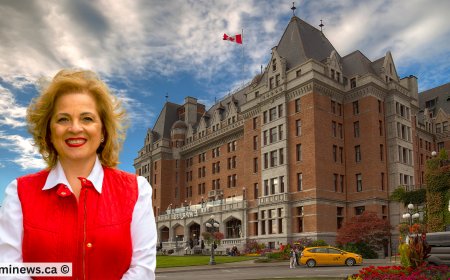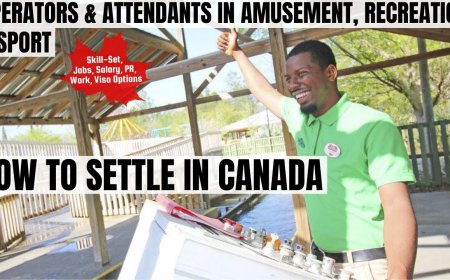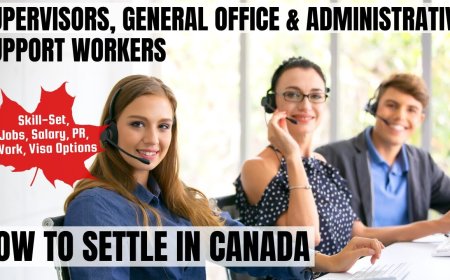Probation and parole officers and related occupations Canada Immigration Pathways: Understanding Salaries, Work Roles, and Best Provinces
Welcome to the pathway to Canada immigration for skilled professionals and trade workers. This guide is specifically tailored for Probation and parole officers and related occupations looking to work and settle in Canada, offering a deep dive into the essential aspects of immigration and employment in this field.
Introduction
Probation and parole officers play a crucial role in the criminal justice system, helping to rehabilitate and reintegrate offenders back into society. In this article, we will focus on career and immigration prospects for Probation and parole officers and related occupations in Canada. We will cover the profile description, main job duties, education and license requirements, skills needed, median age and retirements, salary details, and possible visa options for professionals in this field. If you are considering a career in probation and parole or are looking to immigrate to Canada as a probation and parole officer, this article will provide you with valuable information to help you make informed decisions.
What is the Profile Description of a Probation and parole officers and related occupations as per the Canadian National Occupation Classification (NOC) Standards?
Probation and parole officers are responsible for monitoring the behavior and compliance of criminal offenders who are serving probation or parole terms. They work with individuals to ensure they are following the conditions of their release and are on track with their rehabilitation. Classification officers assess inmates in correctional facilities and develop programs to help them successfully reintegrate into society. These professionals are employed by federal and provincial governments and work both in the community and in correctional facilities.
What are the Main Job Duties of a Probation and parole officers and related occupations in Canada?
- Interview offenders, assess prospects for community reintegration, and prepare pre-sentence reports
- Plan rehabilitation programs, establish rules and goals, and refer offenders to community services
- Supervise probation and parole terms, evaluate progress, and recommend remedial or court action if violations occur
- Conduct regular interviews with probationers and parolees, assess their progress, and maintain rehabilitation plans
- Collaborate with inmates, families, and community contacts to develop and implement suitable rehabilitation programs in correctional institutions
What are the Education, Certifications, and Licensing Requirements to Work as Probation and parole officers and related occupations in Canada?
Prospective probation and parole officers and related occupations must possess at least a bachelor's degree in social work, criminology, psychology, sociology, or a related social science discipline. In some cases, a master's degree in one of these fields may also be necessary.
What Essential Skills are Required for Probation and parole officers and related occupations to succeed in Canada?
To be successful in the profession of probation and parole officers and related occupations, essential skills include service and care, protecting and enforcing, management, supervising, analysis (including analyzing information, planning, and projecting outcomes), communication (including advising and consulting, interviewing, liaising and networking, and professional communication), and information handling (such as processing information). Probation and parole officers must possess strong communication skills to effectively advise and consult individuals under their supervision, interview clients and gather essential information, and network with other professionals in the criminal justice field. Additionally, critical thinking skills are crucial for analyzing information, planning interventions, and projecting outcomes for the individuals under their care. Effective management and supervision skills are essential in overseeing caseloads and ensuring that probationers and parolees comply with the conditions of their release. In conclusion, a successful career in this field requires a well-rounded skill set encompassing service, enforcement, management, communication, analysis, and information handling abilities.
What is the Median Age and Retirement Age for Probation and parole officers and related occupations in Canada?
It is difficult to determine the median age and average retirement age of skilled professionals working as Probation and parole officers and related occupations due to a lack of specific data available. This could be due to various factors such as variations in retirement age preferences among individuals in this field or differences in retirement policies among different agencies. Despite the lack of specific data, it is important to recognize the valuable contributions that experienced professionals in this field make to the criminal justice system and the communities they serve.
How many job openings exist for Other Probation and parole officers and related occupations in Canada, and what's their provincial distribution?
Probation and parole officers and related occupations have a total of 4 job openings in Canada. Of these, British Columbia has the highest number of job openings at 3, while Québec has 1 job opening. British Columbia is the province with the maximum job openings for this occupation, indicating a higher demand for probation and parole officers in the region. On the other hand, Québec has the minimum job openings. This highlights the need for individuals in the field to consider opportunities in British Columbia for potential job placements.
What is the hourly wage or salary of Probation and parole officers and related occupations in different Provinces of Canada?
Based on the wage data provided for the profession of Probation and parole officers and related occupations in Canada, it can be observed that there is significant variation in wages across provinces. In British Columbia, the wages range from $29.57 as the low end, $38.00 as the median, and $44.87 as the high end. In Alberta, the wages are slightly higher with a low of $19.48, a median of $42.91, and a high of $46.78. Moving on to Saskatchewan, the wages range from $29.00 to $36.16 as the median, and up to $46.15 as the high end. In Manitoba, wages are even higher with a low of $18.45, a median of $40.00, and a high of $48.08. In Ontario, the wages range from $27.20 as the low end, $37.98 as the median, and $43.41 as the high end. Quebec follows with wages ranging from $24.54 as the low end, $34.33 as the median, to $43.30 as the high end. Finally, in New Brunswick and Nova Scotia, the wages for probation and parole officers are similar, with a low of $23.00, a median of $34.25, and a high of $46.15 in both provinces. Overall, the data reflects the varying economic conditions and cost of living across provinces, resulting in differences in wages for probation and parole officers in Canada.
What are the various visa options available for Probation and parole officers and related occupations migrating to Canada?
Probation and parole officers and related occupations have various visa options to consider when looking to migrate to Canada. One of the most popular pathways is the Express Entry Visa category, which allows skilled workers to apply for permanent residency based on factors such as age, education, work experience, and language proficiency. Additionally, Provincial Nominee Programs offer opportunities for individuals with specific skills and experience to apply for nomination by a Canadian province or territory. Employer Sponsored Work Visas are another option for probation and parole officers, as they can secure a job offer from a Canadian employer and apply for a work visa. There may also be other visa options available for this occupation. To explore all the possibilities and discuss your immigration plans in detail, you can book an appointment with our professional team.
Have Questions or Need Assistance?
If you have any queries or require assistance with your immigration plans, we're here to help. Our experienced immigration consultants are ready to provide personalized guidance tailored to your specific needs.
Don't hesitate to reach out and schedule an appointment today. Whether you're seeking clarification on immigration processes, exploring visa options, or need support with documentation, we're dedicated to assisting you every step of the way.
Book an appointment with our team to discuss your immigration goals and receive expert guidance for your journey to Canada.
What's Your Reaction?
 Like
0
Like
0
 Dislike
0
Dislike
0
 Love
0
Love
0
 Funny
0
Funny
0
 Angry
0
Angry
0
 Sad
0
Sad
0
 Wow
0
Wow
0







































































